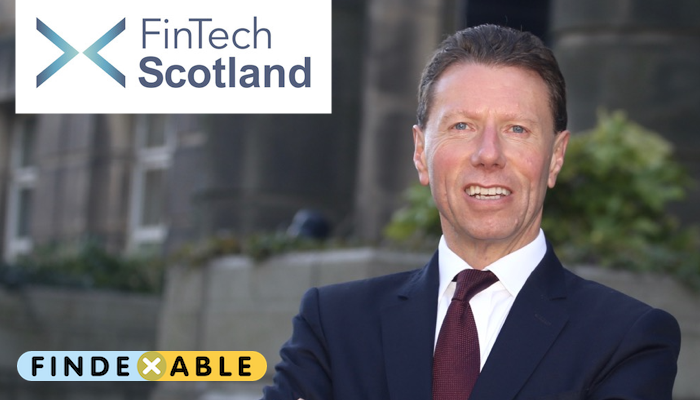How great would it be? – Issue 5
Interview with Stephen Ingledew, CEO, FinTech Scotland
What is FinTech Scotland’s mission for fintech in the region and further afield?
FinTech Scotland is an independent, not-for-profit enabler for fintech in Scotland borne out of collaborative efforts across the financial sector, the Scottish Government and universities recognising the impact of fintech on financial services and a need for independent leadership around how to embrace the opportunity of making a better world for all through financial innovation, collaboration and inclusion – in Scotland and globally.
In January 2018 we began to build a community of innovative fintechs and SMEs to drive innovation and change in all aspects of money, growing from a community of 26 to a collective of 108 fintechs over 20 months. The community ranges from home-grown start-ups to fintechs that have moved into Scotland from other global centres. While we’re not the biggest community, the intention has always been to follow a ‘village approach’ with a focus on diversity and the use of data and technology to change the financial world to create a better environment for human beings.
What does Scotland have to offer fintechs?
There are a number of factors coming into play in choosing Scotland. It has an established ecosystem, an established village that’s easier to connect into the likes of an HSBC, JP Morgan or Aberdeen Standard than it is in a very large city where there is scale but where connecting into similar institutions becomes very difficult.
Secondly, there’s the access to skills. Our universities have a pedigree in the key skills required for fintech, not only technology and data science, but also design, behavioural finance, legal and regulation.
Scotland is known as an entrepreneurial environment and because of its inclusive nature there is cross fertilisation between industries, i.e. businesses starting in health tech or oil and gas for example and moving over to the financial world. And, of course there’s the social dimension in that Scotland is a very different place, offering an entirely different lifestyle to large centres like New York, Singapore or London.
How important is connecting with centres outside of Scotland?
We take a very positive and progressive view that diversity is the real fuel for creativity and creativity then fuels innovation. We strongly believe that no one area has all the answers and that the best way to develop the nous of financial services is through diversity of thought globally and across sectors, whether it be blockchain, cyber security or data. It is not about competing against other hubs but collaborating.
At FinTech Scotland we see it as our role to connect people to collaborate for mutual benefit – building trust between the smaller organisations who need the large establishments to grow and the large institutions who need the small companies to innovate. It is not easy, but it is ultimately about people, culture and intelligent collaboration – it is about managing the expectations of smaller players while at the same managing the risks for the big institutions.
A key part of this collaboration for us lies with the regulator, the FCA, which has now seconded a senior regulator into FinTech Scotland to work alongside fintechs to help them in innovating and working with the larger institutions – which is valuable for the entire ecosystem.
Collaboration with universities and colleges is equally important in that it adds further diversity and the ability to approach problems from a different perspective.
How does Brexit and the uncertainties around this affect collaboration?
Our local neighbours for Scotland are other parts of the UK and also Europe and there are obvious areas for us to collaborate even if things are uncertain at the present time. Because we’ve been part of Europe and our financial systems have been intertwined for many years, this cannot easily be disentangled. That’s the reality. The key thing for Scotland is to embrace openness by encouraging more businesses and individuals from Europe as well as other parts of the world to come here and work, to encourage inclusiveness and diversity of people and skills which are fundamental for future growth.
Why is data important – is there enough accurate data available?
It is important to look at data from a social dimension (the ethical use of data) as well as the economic dimension, i.e. enabling better decisions for economic growth and development.
There’s a high degree of expertise and investment in infrastructure in Scotland and outstanding work is being done by universities such as Edinburgh University’s School of Infomatics, which is globally renowned in this area. Government and industry are investing heavily in data innovation centres and laboratories to establish Scotland as a global finance centre of excellence.
The Global Fintech Index by Findexable launches worldwide on 4 December 2019
Follow us on @findexable

